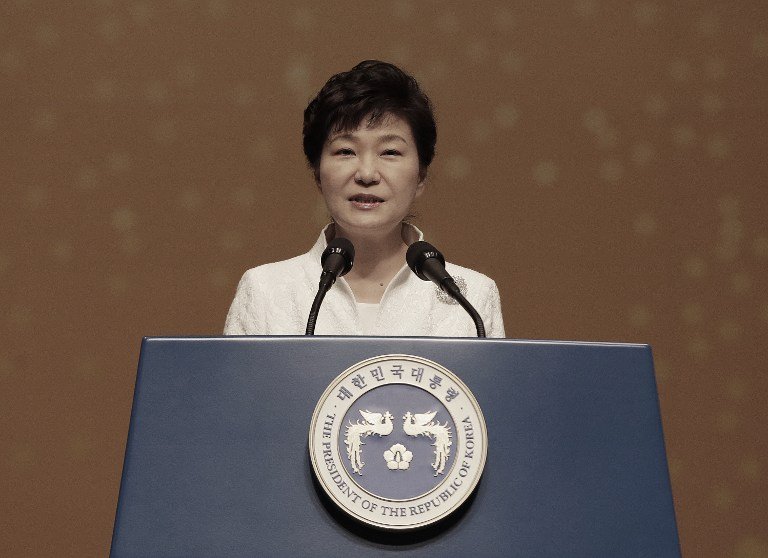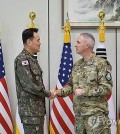- California Assembly OKs highest minimum wage in nation
- S. Korea unveils first graphic cigarette warnings
- US joins with South Korea, Japan in bid to deter North Korea
- LPGA golfer Chun In-gee finally back in action
- S. Korea won’t be top seed in final World Cup qualification round
- US men’s soccer misses 2nd straight Olympics
- US back on track in qualifying with 4-0 win over Guatemala
- High-intensity workout injuries spawn cottage industry
- CDC expands range of Zika mosquitoes into parts of Northeast
- Who knew? ‘The Walking Dead’ is helping families connect
N. Korean threats stifling Asian growth: President Park
By Kang Seung-woo
President Park Geun-hye said Tuesday that North Korea’s nuclear threats and provocations are undermining stability in Asia and hindering its growth potential.
“The Asian region has enormous growth potential, but as long as North Korea keeps blocking the blood vessel of growth with its nuclear threats and provocations, it will be hard to expect genuine stability and progress,” Park said in a speech to the Asian Leadership Conference in Seoul.
“The North raised tensions by test-firing a submarine-launched ballistic missile (SLBM) and shocking the international community after executing several high-ranking officials.”
Two weeks ago, the repressive state threatened to fire at South Korean naval ships intruding in its self-proclaimed territorial waters, during an apparently successful testing of an SLBM. It also staged unusual night-time firing drills near the tense western sea border with the South last week.
In addition, the young North Korean dictator had his Defense Minister Hyon Yong-chol executed for disloyalty, according to the National Intelligence Service (NIS) last Wednesday.
Amid escalating tensions, the President vowed a merciless response to provocations from the North.
“Seoul will strongly respond to any of Pyongyang’s possible provocations with consistent discipline, but we will also try to convince the North to walk on the normal path of progress through exchange and cooperation with the international community,” Park said.
She said that rapprochement between South and North Korea is the first step to address the issue, promoting her initiative to construct a peace park in the demilitarized zone (DMZ).
“Should the South and the North join hands in the establishment of the DMZ world eco-peace park and begin cooperation, it will hugely contribute to world peace as well as stability in Northeast Asia,” Park said.
President Park, who believes the Korean reunification will bring huge economic benefits, said that the South will continue civilian-level exchanges with and humanitarian aid to the North ― although the North has yet to respond to Seoul’s proposals.
“The unification efforts need to begin from mutual understanding and exchange between South and North Koreans,” she said.
As part of the plan, the government will seek to resume inter-Korean family reunions, she added.
The two Koreas held two rounds of reunions between Feb. 20 and 25 last year at the Mt. Geumgang resort in the North and the Park administration has sought to hold the event on a more regular basis.
















